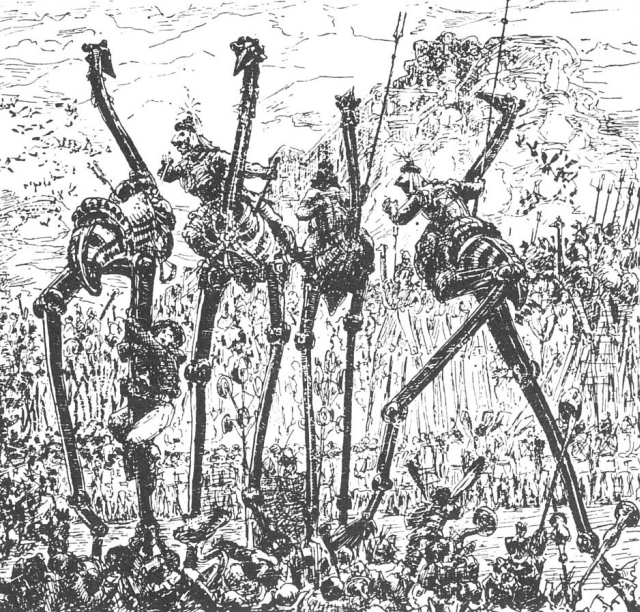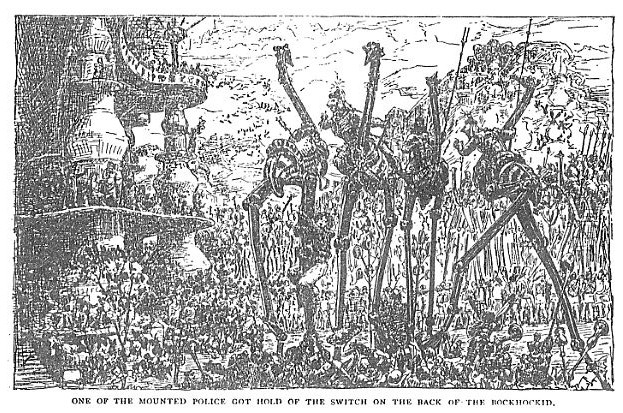
William Richard Bradshaw (1851–1927) was an Irish-born American author, editor and lecturer who served as president of the New York Anti-Vivisection Society. He is known best for his science fiction-type novel The Goddess of Atvatabar: being the history of the discovery of the interior world, and conquest of Atvatabar (1892).
Extract from the book.
Chapter XIII.
Marching in Triumph.
There was a blase of excitement in the streets of Kioram when our procession appeared on the grand boulevard leading from the harbor to the fortress, some four miles in length. We presented a strange appearance not only to the people of the city, but to ourselves as well.
Prior to our appearance before the people we were obliged to adjust ourselves to the motion of an immence walking machine, the product of the inventive skill of Atvatabar.
Governor Ladalmir explained that the cavalry of Atvatabar were mounted on such locomotice machines, built on the plan of immense ostriches, called bockhockids. They were forty feet in height from toe to head, the saddle being thirty feet from the ground. The iron muscles of legs and body, moved by a powerful magnic(sic) motor inside the body of the monster, acted on bones of hollow steel. Each machine was operated by the dynamo in the body, which was adjusted to act or remain inert, as required, when riding the structure. A switch in front of the saddle set the bockhockid in motion or brought it to rest again. It was simply a gigantic velocipede without wheels.
"We'll ride the bastes,(sic)" said Flathootly, wth suppressed excitement.
"Do you think you can accommodate yourselves to ride such a machine?" said the governor. "You will find it, after aq little practice, an imposing method of travel."

Bradshaw's book had many illustrators. The Hochbockid as illustrated on page 69 was by Carl Guthers.
Not to be a pedant, but the caption and all other references (as well as the excerpt) call them Bockhockids, not Hockbockids.